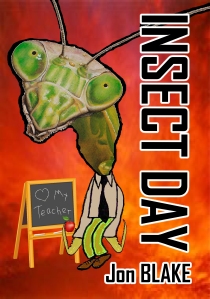I’m enjoying reading Stealing Dylan From Woodstock, albeit with a critical eye, and will post a review of this shortly. Meanwhile, however, by the wonders of modern communication I have been propelled back into contact with members of my early 70s prog-rock band, Peach. I won’t say that Peach are immortalised in the first chapter of 69ers, as Butterhorn are a heavily fictionalised version of the real-life band, but the introduction to them is pretty true:
“But it was music that had united Gerry and Scott, in particular the desire to write a rock opera before they had mastered three chords. Oblivious to humiliation, they had performed their first efforts in the back bar at the Royal George on a Woolworth’s chord organ and a mandolin. What they produced was barely music, but to their minds it was exactly its lack of attention to time, tune or structure which elevated it above the commercial crap that progressive rock was destined to supercede.
Like ten thousand others, Gerry and Scott felt uniquely worthy of the world’s attention.
They did progress, however, inspired by a sense of mission which led them to mythologise every event in the band’s evolution: a chance meeting with Tim the strumming telephone engineer became Stanley’s encounter with Livingstone; a trip to Shaftesbury Road to buy amps and guitars became Moses’s expedition to the Promised Land.”
Butterhorn drummer Stan Carey is very much the villain of the piece, terrorising the band with the threat of rearranged faces, then insisting Phil Collins-style that they perform his songs and splitting the band when they won’t. I’m happy to say that Peach’s drummer Tony Webb was not quite such a villain, and indeed it turns out that he remains the band’s number one fan – after 43 years he got in touch with me from his home in Canada and we have exchanged many enthusiastic emails (and a rough recording I’ve just made of extracts from our 43-year-old rock opera). Thanks to Tony I’m also back in touch with guitarist Brian McGrath on whom the character of Tim was based:
“As foreign to pretension as Gerry was to groundedness, Tim did his best with the rock operas but was far more at home with a classic blues or a concise slice of Cream. Tim was a dry character with a ready wit, a droopy moustache and an old Austin A35 which only sporadically committed itself to forward motion, its favoured action being an up-and-down clown-car bounce till whipped and cursed back into progress like a surly mule.”
I’ve played in many bands since Peach, but never one that tried to play a prog-rock major opus to an audience consisting entirely of skinheads in the shadow of an oil refinery. I included the travails of Butterhorn to give some context to the great festival of 1969 and having so surprisingly found myself thinking about that enterprise again, am very glad I did.
 I’m happy to say that I’ll be appearing at the
I’m happy to say that I’ll be appearing at the 


